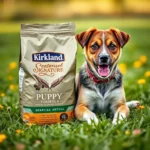
Introduction
Understanding the nutritional needs of our furry friends is crucial for their health and well-being. Just like humans, dogs require a balanced diet that includes a variety of nutrients to thrive. With the rise of pet ownership and the growing interest in holistic pet care, many pet parents are exploring the idea of incorporating human foods into their dogs’ diets. One such food that often raises questions is capers. These small, pickled flower buds are commonly used in various dishes to add flavor and zest. But can dogs eat capers? This article delves into the safety, nutritional value, and potential risks of feeding capers to dogs.
Understanding Dog Nutrition
Basic Nutritional Needs of Dogs
To determine whether capers are a suitable addition to a dog’s diet, it’s essential to understand the basic nutritional needs of dogs. Dogs are omnivores, which means they require a balanced intake of macronutrients:
- Proteins: Essential for growth, maintenance, and repair of tissues. They play a significant role in producing enzymes and hormones.
- Fats: Provide energy and support cell growth. Healthy fats also help in absorbing certain vitamins.
- Carbohydrates: Serve as a source of quick energy and can aid in digestion through dietary fiber.
In addition to macronutrients, dogs also need a variety of vitamins and minerals, including calcium, phosphorus, and potassium, to maintain optimal health. It is important to note that different breeds may have specific nutritional requirements based on their size, age, and activity level.
Common Human Foods for Dogs
Many dog owners wish to share their meals with their pets, but not all human foods are suitable for dogs. Some safe options include:
- Carrots: Low in calories and high in fiber, they make a crunchy treat.
- Pumpkin: Excellent for digestion and rich in vitamins.
- Chicken: A good source of protein when cooked without seasoning.
However, moderation is vital. Overfeeding can lead to obesity and other health issues. Moreover, some human foods are harmful to dogs, including:
- Chocolate
- Grapes and raisins
- Onions and garlic
Understanding which foods are safe can help pet owners make informed choices about their dogs’ diets.
Capers: An Overview
What Are Capers?
Capers are the flower buds of the caper bush (Capparis spinosa) that are typically harvested before they bloom. These buds are often pickled or brined, giving them their distinct tangy flavor.
Nutritionally, capers are low in calories and contain several essential vitamins and minerals. They are particularly known for their high levels of vitamin K, which plays a crucial role in blood clotting and bone health. Capers also contain antioxidants, which can help combat oxidative stress in the body.
Nutritional Value of Capers
The nutritional profile of capers per tablespoon (approximately 9 grams) is as follows:
- Calories: 2
- Vitamin K: 1.4 µg (1% DV)
- Sodium: 322 mg (14% DV)
- Antioxidants: Various, including quercetin and rutin
The health benefits associated with capers for humans include their potential anti-inflammatory properties and their role in improving heart health. However, when it comes to dogs, the picture may be different.
Can Dogs Eat Capers?
Safety of Capers for Dogs
When considering whether dogs can eat capers, it’s essential to assess their safety. Capers are not toxic to dogs, which means that, in small amounts, they are unlikely to cause serious harm. However, the high sodium content in capers can pose a risk to dogs, especially those with certain health conditions such as heart disease or kidney issues.
Veterinarians generally recommend avoiding capers in your dog’s diet. While a small taste here and there may not be harmful, regular consumption is not advisable due to the potential health risks associated with high sodium intake.
Potential Benefits of Capers for Dogs
If consumed in moderation, capers could offer some nutritional benefits, such as:
- Vitamins and Antioxidants: Capers contain vitamins that might contribute to overall health if included sparingly.
- Flavor Enhancement: For some dogs, a bit of caper might add a new taste experience, encouraging interest in their food.
However, it’s crucial to weigh these potential benefits against the risks, particularly regarding sodium content.
Risks and Side Effects
The primary concern regarding dogs consuming capers is their high sodium content. Excessive sodium can lead to several health issues, including:
- Increased thirst: Dogs may drink more water than usual.
- Urinary issues: High sodium levels can strain the kidneys.
- Sodium ion poisoning: In severe cases, excessive sodium can lead to symptoms like vomiting, diarrhea, and even seizures.
If a dog accidentally consumes capers, owners should monitor for any adverse reactions. Symptoms of potential side effects may include:
- Vomiting
- Diarrhea
- Lethargy
- Excessive thirst
If any of these symptoms occur, it’s essential to consult a veterinarian promptly.
Alternatives to Capers for Dogs
Dog-Friendly Herbs and Spices
If you’re looking to enhance your dog’s meals without the risks associated with capers, consider incorporating some dog-friendly herbs and spices. Here are a few safe options:
- Parsley: Aids in freshening breath and is rich in vitamins A, C, and K.
- Basil: Contains antioxidants and has anti-inflammatory properties.
- Turmeric: Known for its anti-inflammatory benefits, turmeric can be a great addition in small amounts.
These alternatives not only add flavor but also provide health benefits that can enhance your dog’s diet.
Healthy Treat Options
When it comes to treating your dog, it’s best to stick to healthy options that are safe and nutritious. Here are some suggestions:
- Carrot sticks: Crunchy and full of vitamins.
- Coconut oil: Can promote a healthy coat when fed in moderation.
- Sweet potato chews: A nutritious, chewy treat that dogs often love.
You can also try making homemade dog treats using safe ingredients. Here’s a simple recipe for peanut butter and pumpkin treats:
Peanut Butter and Pumpkin Dog Treats
Ingredients:
– 1 cup of pumpkin puree
– 1/2 cup of peanut butter (make sure it’s xylitol-free)
– 2 cups of whole wheat flour
– 1 egg
Instructions:
1. Preheat your oven to 350°F (175°C).
2. In a bowl, mix the pumpkin puree, peanut butter, and egg until well combined.
3. Gradually add the flour until a dough forms.
4. Roll out the dough on a floured surface and cut into shapes.
5. Bake for 20-25 minutes until firm.
6. Let cool before serving to your dog.
These treats are not only safe but also delicious for your furry friend.
Conclusion
In summary, while dogs can eat capers in small amounts, it’s best to avoid them due to their high sodium content and the potential risks associated with regular consumption. Understanding your dog’s nutritional needs and being cautious with human foods is essential for maintaining their health.
Always consult with a veterinarian before introducing new foods into your dog’s diet to ensure safety and suitability. With the right approach to nutrition, you can keep your dog healthy and happy for years to come.









